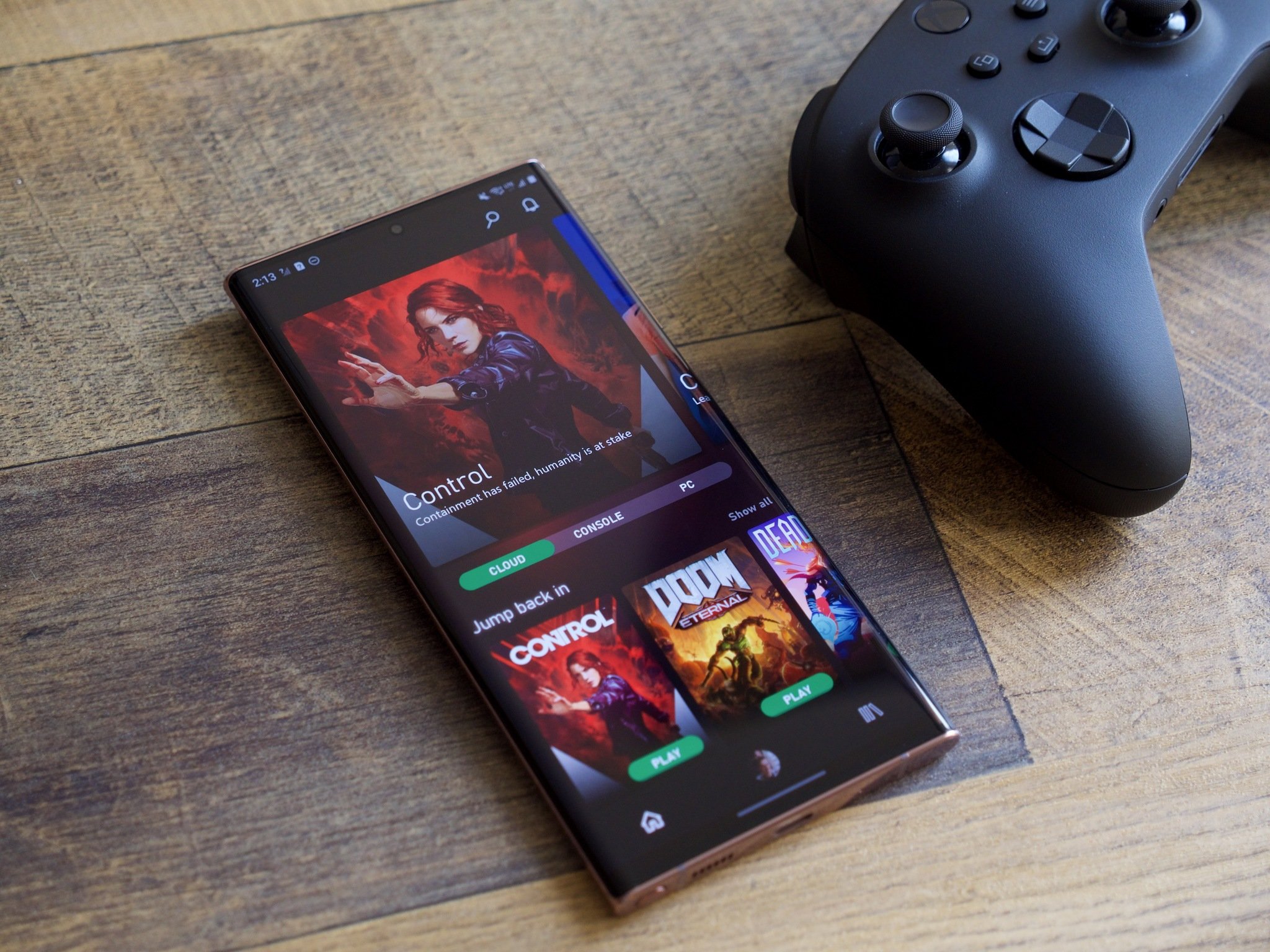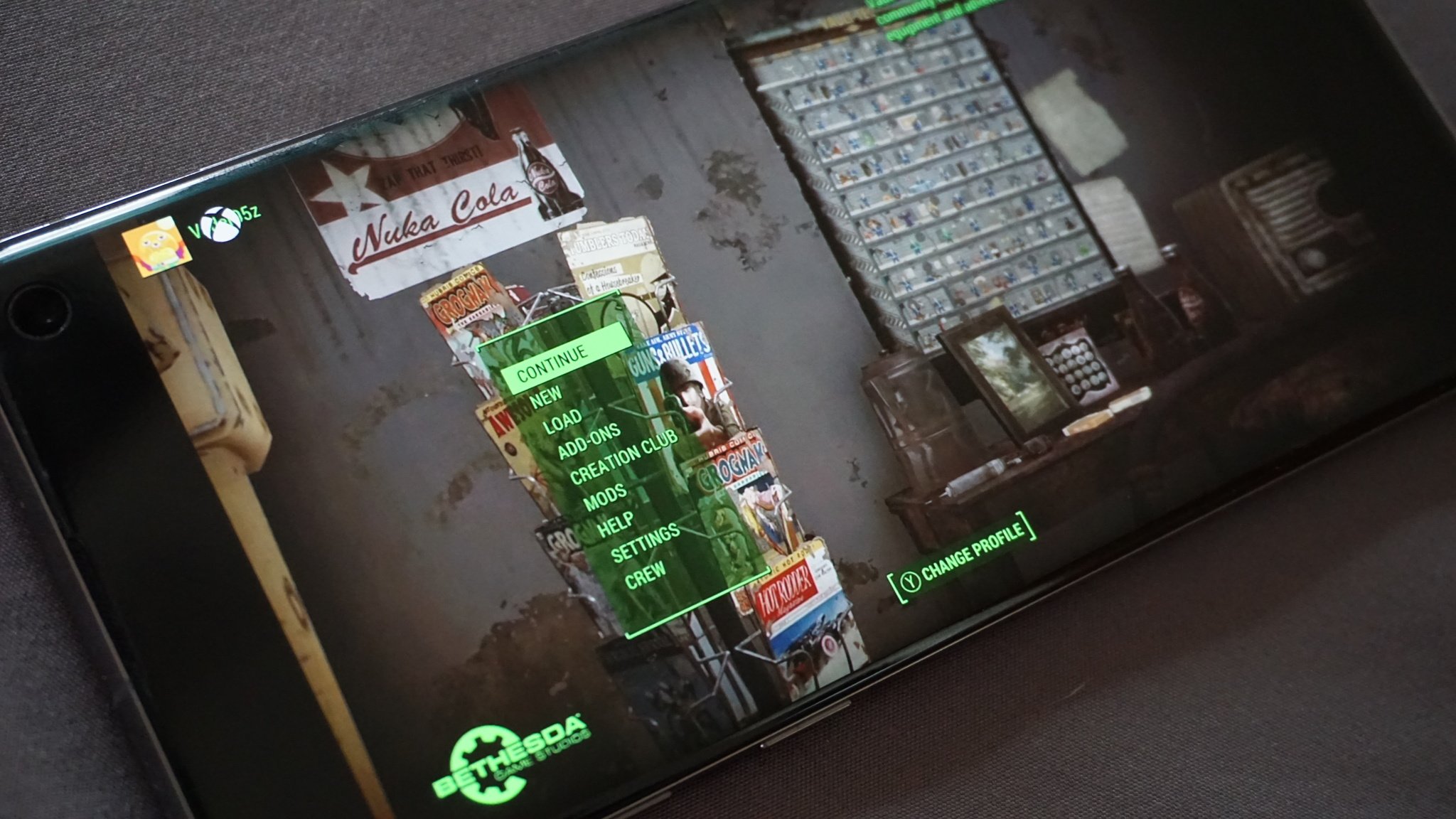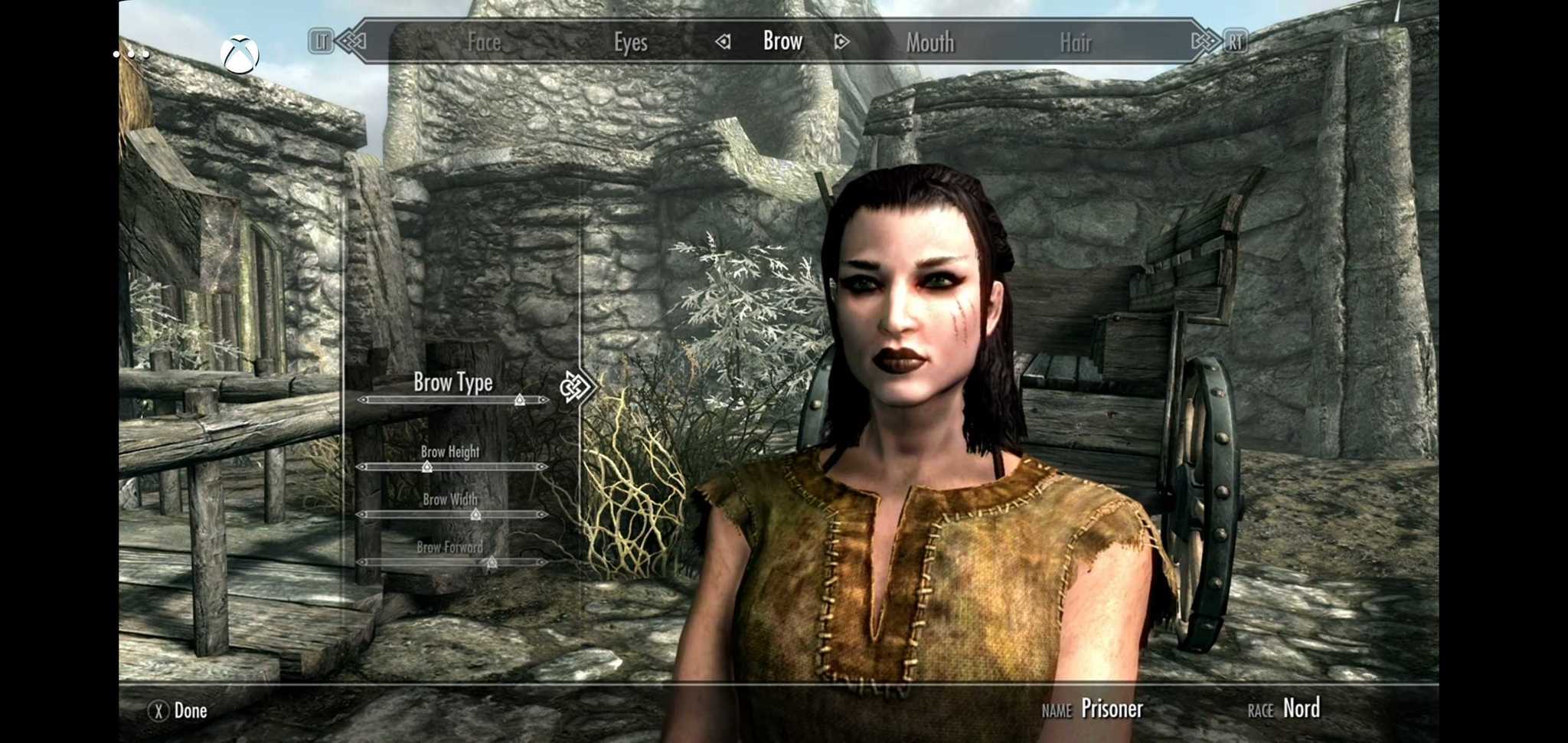If the upcoming Microsoft Game Pass standalone device supports more than Game Pass, it will be hard to recommend anything better.
A whole lot of people using any of the best Android phones have tried Microsoft's Game Pass streaming service, and most people think it's a hit. It's not anything new — NVIDIA started streaming full-on console and PC titles to Android a long time ago, and now even Google is in the game with Stadia. Microsoft's edge is its large library of titles that people actually want to play, and it has reasonable rates: $15 each month gets you streaming on your console, PC, and Android phone, plus Xbox Live Gold and EA Play membership. Not. Too. Shabby.
There's plenty of content out there that goes into detail about Game Pass and why you should think about giving it a try if you haven't. It could be the future of mobile gaming and it might even be a reason to not even bother buying an expensive console. If nothing else, it is a great way to play high-quality games on almost every screen. Almost.
It's that almost part that Microsoft is determined to change because it wants you to be able to use Game Pass on every screen — which really means your television — without plunking down big money on a new Xbox. During the week that was E3, Microsoft had this to say in a blog post on its Xbox Wire page:
Xbox is working with global TV manufacturers to embed the Xbox experience directly into internet-connected televisions with no extra hardware required except a controller.
Xbox is building its own streaming devices for cloud gaming to reach gamers on any TV or monitor without the need for a console at all.
This isn't any breaking news, and chances are you've already read it in an article like this one. But this doesn't tell but half the story because I'm almost certain that if Microsoft were to build a cheap (and yes, it will need to be cheap) HDMI stick or dongle that lets you use Game Pass on any telly, it will run Android and do a lot more than just play Xbox games.
OK, this is pure speculation on my part right now because I actually reached out to the Xbox team and straight-up asked them about the software on this upcoming device. You can guess what the answer was: We have nothing more to say at this time. Fair 'nuff, that's exactly what we all expected Microsoft to say right now. But I'm not alone in thinking that Android would be involved, and with it would come more than just a way to play games.
Android Central also reached out to Evan Kubes, the president of Rumble Gaming and a really smart guy when it comes to the gaming industry with a couple of questions. Since Evan isn't directly employed by Microsoft, he can be more candid and say what he really thinks. We asked two questions that reach right for the heart of the matter:
Is it in Microsoft's best interests to build a version of its own Xbox software that will work with low-spec devices, or is using a pre-built solution like Android a simple and/or better solution?
Developing and owning IP - especially when it's software – will almost always be the preferred route. This is because it will generally offer more flexibility and freedom for the engineers to update and scale the product. Having said that, R&D can be incredibly expensive and time-consuming. Sometimes, it's just easier to license 3rd party products that are sufficient and achieve a similar result. In this case, I can't comment on whether Xbox using Android is a better solution, but it is likely a more cost-effective and time-efficient solution.
Do we expect inexpensive Game Pass stand-alone devices to have streaming media capabilities? If so, does this make it even more simple to use a solution like Android because the apps and services are already in place?
The transition from linear to digital media is happening very quickly. Younger generations, in particular, are consuming pretty much all of their content through digital means (OTT, Netflix, Twitch, YouTube, etc.). And arguably, nothing has benefited more from this transition than streaming platforms. I'd be shocked if Game Pass stand-alone devices did not have streaming media capabilities if, for nothing else, it can print money and acquire users quickly. So it makes total sense to use Android solutions because the apps and services are fully developed and seamless to use.
So yes, it would make total sense to see Microsoft use Android to power an upcoming HDMI stick, and because of that, it could put the same type of streaming media services in place that you would find on the Xbox itself. It would be better for Microsoft if it could find a way to shoehorn some build of Windows onto super-low spec hardware, but that's really not resource or time-friendly. Now stuff gets interesting because a cheap (I'm thinking under $100) TV box or dongle or HDMI stick or whatever from Microsoft would be the best Android TV (not to be confused with Android TV proper) experience of all of them.
This is because Microsoft has seen the writing on the wall and knows that right now, at least, Xbox is its revenue stream. Yes, almost every single business uses Windows computers, and there are like gazillions of them out there, but a desktop PC isn't something you buy every year. Unless you're like me and find new ways to break things, anyway. But a Game Pass subscription is something that a whole lot of people will happily pay for every month, and after X number of subs are gained, the rest is pure profit. Microsoft can and will make sure the cost of any Game Pass-ready device is reasonable and that it has features that make all of us want to buy one.
Buying today? Get a Shield TV. Buying tomorrow? See what Microsoft has for sale first.
If you ask me today what Android for the television experience you should buy into — and again I'm not just talking about Android TV the platform but a way to get Android working on your telly — I would say you should buy an NVIDIA Shield TV. They're not exactly cheap, but they are powerful and can play local Shield-optimized games. They can also stream Games from any gaming PC with an NVIDIA card, and you get access to all the streaming apps Android has to offer. Only one of these things is important to most people, and that's the "all the streaming apps" part. The Shield really stands out because NVIDIA seems keen on keeping it updated until the end of time.
That last bit is also why you should never ever ever buy a TV with Android TV built-in. Most companies hate to update stuff because it's not free. If you're an Android fan, you want things to be updated. Just buy a Shield TV until the Xbox Game Pass HDMI stick is available.
Yes, Stadia is a thing, and there will always be ways to make whatever Microsoft has to offer work on myriad devices, including grandma's old Jitterbug phone and a spliced AV cord. And if that's what you like to do, go for it because that's 1.) cool as hell and 2.) fun. But most people want to listen to Spotify, watch Netflix or Disney+, and maybe even play Halo Infinite or Fallout 4 (OK, I'm the only one who wants to play Fallout 4 but whatever). Microsoft is gonna kill this. I'm ordering one as soon as I can because I know it has potential.
Source: androidcentral



